Best movies like Against Wind and Tide: A Cuban Odyssey
A unique, carefully handpicked, selection of the best movies like Against Wind and Tide: A Cuban Odyssey . If you liked Against Wind and Tide: A Cuban Odyssey then you may also like: Urge to Build, The Wolf Men, The Naked Eye, Never Give Up: The 20th Century Odyssey of Herbert Zipper, Other Voices and many more popular movies featured on this list. You can further filter the list even more or get a random selection from the list of similar movies, to make your selection even easier.
Against Wind and Tide: A Cuban Odyssey is a 1981 American documentary film about the Mariel boatlift, which was first broadcast on PBS the week of June 1, 1981. Written by John Brousek, the film was nominated for the Academy Award for Best Documentary Feature.
You may filter the list of movies on this page for a more refined, personalized selection of movies.
Still not sure what to watch click the recommend buttun below to get a movie recommendation selected from all the movies on this list
The Wolf Men
The Wolf Men [also known as Wolves and the Wolf Men) is a 1969 documentary film produced by Irwin Rosten. It was produced for the GE Monogram documentary series on NBC. The film follows naturalists as they fight to save rapidly vanishing species of wolves. It was nominated for an Academy Award for Best Documentary Feature.
The Naked Eye
The Naked Eye is a 1956 American documentary film about the history of photography directed by Louis Clyde Stoumen. It was nominated for an Academy Award for Best Documentary Feature.
Never Give Up: The 20th Century Odyssey of Herbert Zipper
Never Give Up: The 20th Century Odyssey of Herbert Zipper is a 1995 short documentary film about Herbert Zipper. It was written, directed, and produced by Terry Sanders, with Freida Lee Mock co-producing. The extraordinary story of Vienna born musician and conductor Herbert Zipper who survived Dachau, Buchenwald, and a Japanese concentration camp to become one of the great music educators of the world, continuing at 92 to bring music to the inner city schools of America. In Dachau, Zipper organized secret concerts using makeshift instruments. He learned the lesson that music and the arts are essential to the very existence of life. For the last half of the 20th century, Zipper has pioneered in bringing professional orchestras into America's inner city schools. It was nominated for an Academy Award for Best Documentary Short at the 68th Academy Awards in 1996.
Other Voices
Other Voices is a 1970 documentary film directed by David H. Sawyer. The film follows Dr. Albert Honig, one of the most controversial Doctors of his era, as he demonstrates various techniques he has employed in his treatment of comatose, catatonic, schizophrenic, and autistic patients. It also follows a handful of patients living in a rural setting in Doylestown, Pennsylvania during their daily activities and during treatment sessions with Dr. Honig. It was nominated for an Academy Award for Best Documentary Feature.
Rebel in Paradise
Rebel in Paradise is a 1960 American documentary film on the artist Paul Gauguin produced by Robert D. Fraser, a San Francisco real estate developer. It was nominated for an Academy Award for Best Documentary Feature.
Remember Me
Remember Me is a 1979 American short documentary film produced by Dick Young, that was filmed in the US, the Middle East and Asia. The film depicts the youthful exuberance of children from many nations in contrasted with the squalor, hardship, and unfulfilled potential of their lives. It was nominated for an Academy Award for Best Documentary Short.
The Rising Tide
This film shows the growth of cooperatives in the Maritime provinces and how they brought new life and hope to poverty-stricken fishermen. The Rising Tide is a 1949 Canadian short documentary film directed by Jean Palardy. It was nominated for an Academy Award for Best Documentary Short.
Journey Into Self
Journey into Self is a 1968 documentary film introduced by Stanley Kramer, and produced and directed by Bill McGaw. The film portrays a 16-hour group-therapy session for eight well-adjusted people who had never met before. The session was led by psychologists Carl Rogers and Richard Farson. The participants included a cashier, a theology student, a teacher, a principal, a housewife, and three businessmen. It won the Academy Award for Best Documentary Feature in 1968.
Journey Into Spring
Journey into Spring is a 1958 British short documentary film directed by Ralph Keene, and made by British Transport Films. The film -- partly a tribute to the work of the pioneering naturalist and ornithologist Gilbert White (1720-1793), author of The Natural History of Selborne -- features a commentary by the poet Laurie Lee, and camerawork by the wildlife cinematographer Patrick Carey. The journey suggested by the title is through time rather than space. In fact, two such journeys are made: the first back to the eighteenth century to pay tribute to the work of White, and the second studies the changing natural landscape near White's home town of Selborne in Hampshire between a typical March and May. It was nominated for two Academy Awards -- one for Best Documentary Short, and the other for Best Live Action Short.
Kenji Comes Home
Kenji Comes Home is a 1949 documentary film produced by Paul F. Heard. Written and directed by Charles F. Schwep, it was filmed on location in Japan and employed native actors. The film is the story of Kenji, a repatriated prisoner of war in Japan, and his difficulties in settling down. He is torn between the glowing promises of communism and ideals of his girlfriend Aki's Christian religion. The film was nominated for an Academy Award for Best Documentary Feature.
A King's Story
A King's Story is a 1965 British documentary film directed by Harry Booth about the life of King Edward VIII, from his birth until abdication in 1936. It was nominated for an Academy Award for Best Documentary Feature.
Baptism of Fire
Baptism of Fire is a 1943 American documentary, meant to be an Army training film starring Elisha Cook Jr. It was nominated for an Academy Award for Best Documentary Feature.
The Challenge... A Tribute to Modern Art
The Challenge... A Tribute to Modern Art is a 1974 American documentary film directed by Herbert Kline. The film shows footage of great modern artists in their studios creating and commenting on their work, with narration and commentary by Orson Welles. It was nominated for an Academy Award for Best Documentary Feature.
Cowboy
Cowboy is a 1966 American short documentary film directed by Michael Ahnemann and produced by Ahnemann and Gary Schlosser. At a ranch in Tehachapi, California, a husband and father lives the life of a modern cowboy. The film was nominated for an Academy Award for Best Documentary Short.
The End of the Road
The End of the Road (also known as Alaska: The End of the Road) is a 1976 British short documentary film directed by John Armstrong. The film is about British Petroleum's Alaska operations, including the construction of the Trans-Alaska Pipeline System. It was nominated for an Academy Award for Best Documentary Short.
High Schools
High Schools is a 1984 American documentary film produced and directed by Charles Guggenheim. It is based on Ernest L. Boyer's book, High School, and was filmed on location in seven American high schools. The film was nominated for an Academy Award for Best Documentary Feature.
The Flintstones: Wind-Up Wilma
Wilma is a celebrity when she gets a shot at the big leagues and becomes a pitcher for the Bedrock Dodgers after nailing a couple of robbers with a melon at the grocery store; however, she and Fred argue over her ambition to pitch for the team because Fred thinks a woman's place is in the home.
To Write and Keep Kind
A PBS documentary on the life and work of writer Raymond Carver. It features interviews with his family and friends, and provides an insightful look at his short stories and poems.
Springsteen On Broadway
Springsteen on Broadway is a solo acoustic performance written and performed by Tony Award, Academy Award, and 20-time Grammy Award winner Bruce Springsteen. Based on his worldwide best-selling autobiography 'Born to Run,' Springsteen on Broadway is a unique evening with Bruce, his guitar, a piano, and his very personal stories. In addition, it features a special appearance by Patti Scialfa. Netflix will allow global audiences to see the show critics have been raving about from anywhere they are.
The Land Where the Blues Began
An exploration of the musical and social origins of the blues, shot on location in Mississippi in 1978 by Alan Lomax, John Bishop, and Worth Long in association with the Mississippi Authority for Educational Television and broadcast on PBS in 1980. This re-release in 2009 includes two hours of additional music.
Citizen Berlusconi
All the games and behind-the-scenes of Silvio Berlusconi's power, including politics, media and soccer. Citizen Berlusconi is the original version of the documentary written by Andrea Cairola and Susan Gray broadcast on August 21, 2003, during the Wide Angle program of Thirteen/Wnet New York, the major U.S. public TV station Pbs.
A Question of Leadership
Shortly after Margaret Thatcher's election as prime minister, Ken Loach returned to documentary, convinced that the long gestation of feature films made them useless as instruments of topical social comment. But his trade union documentary A Question of Leadership, intended for national ITV broadcast, was criticised by the Independent Broadcasting Authority for its explicitly anti-government stance. It was eventually screened a year later, exclusively in the Midlands (tx. 13/8/1981). Believing that the then-new Channel 4 would be more amenable to politicised documentaries, Loach proposed the four-part Questions of Leadership (1983), a wider-ranging study of the trade union movement - but on viewing the completed programmes' strong criticism of leading trade unionists, an anxious Channel 4 shortened the series to two parts and proposed screening a 'balancing' documentary by a different filmmaker, before scrapping the broadcast altogether.
Turn of the Tide
Turn of the Tide is a 1935 British film directed by Norman Walker. It was the first feature film made by J. Arthur Rank. It is set in a North Yorkshire fishing village, and relates the rivalry between two fishing families. The actors included John Garrick, Geraldine Fitzgerald, Wilfrid Lawson speak in the local accent. The work is based on the novel Three Fevers by Leo Walmsley.
MoPOP Founders Award 2020 Honoring Alice in Chains
For the first time ever, the Museum of Pop Culture's highly-anticipated Founders Award annual fundraiser event will be free to the public, streaming online Tuesday, December 1 as MoPOP honors Seattle's own Alice in Chains. The one-night-only benefit will be broadcast virtually beginning at 6 p.m. PT featuring unforgettable performances by Alice in Chains, as well as an acclaimed lineup of musicians who will put their own twist on some of the band's most iconic songs.
The Incredible Machine
The Incredible Machine [also known as Man: The Incredible Machine] is a 1975 American documentary film directed by Irwin Rosten and Ed Spiegel. It follows a "ourney" inside the human body, using advanced technology of microscopic photography and sound, including scenes of heat radiation, color x-rays, and camera exploration of a living human heart. The film is famous for including some of the first pictures ever taken inside the human body and presented on film, using some of the earliest film that medical researchers had taken inside the human digestive tract and bloodstream. It ranked as the most-watched program in Public Broadcasting Service until 1982. It was nominated for an Academy Award for Best Documentary Feature.
First Contact
First Contact is a 1983 documentary by Bob Connolly and Robin Anderson which recounts the discovery of a flourishing native population in the interior highlands of New Guinea in 1930 in what had been thought to be an uninhabited area. It is based on the book of the same name by the same authors. Inhabitants of the region and surviving members of the Leahy brothers' gold prospecting party recount their astonishment at this unforeseen meeting. The film includes still photographs taken by a member of the expedition and contemporary footage of the island's terrain. It was nominated for an Academy Award for Best Documentary Feature.
The Really Big Family
The Really Big Family is a 1966 American documentary film directed by Alexander Grasshoff about the Dukes family of Seattle, who had 18 children. It was nominated for an Academy Award for Best Documentary Feature.
Say Goodbye
Say Goodbye is a 1971 American documentary film about the relationship between humans and nature, directed by David H. Vowell. The film depicts the plight of various animal species at the hands of man and his influence. Some segments include the clubbing of seals on the Pribilof Islands, the effect of DDT on brown pelican populations in Texas, and the plight of severely endangered animals. It was nominated for the Academy Award for Best Documentary Feature.
Alaska Wilderness Lake
Alaska Wilderness Lake is a 1971 American documentary film produced by Alan Landsburg. It was nominated for an Academy Award for Best Documentary Feature. The film is based on the book Red Salmon, Brown Bear by Theodore J. Walker.
Journey to the Outer Limits
Journey to the Outer Limits is a 1973 American documentary film directed by Alexander Grasshoff. The fillm is a National Geographic documentary about students in the Outward Bound program as they confront themselves while training to climb the Santa Rosa Peak in the Peruvian Andes. It was nominated for an Academy Award for Best Documentary Feature.
Fighting for Our Lives
Fighting for Our Lives is a 1975 documentary film produced and directed by Glen Pearcy. The film documents the striking of California grape workers from Coachella to Fresno as they negotiate for a United Farm Workers (UFW) contract in 1973. The film also depicts their non-violent struggle against police brutality on the picket lines. It was nominated for the 1976 Academy Award for Best Documentary Feature.
An Essay on Matisse
Chronicles the life and art of Henri Matisse (1869-1954), the French painter whose innovative style and use of color changed the face of 20th-century art. An Essay on Matisse was nominated for an Academy Award in the documentary short category. It was originally broadcast on PBS.
Inside the Golden Statue
A behind-the-scenes look at the preparations for the live broadcast of the 69th Annual Academy Awards ceremony.

























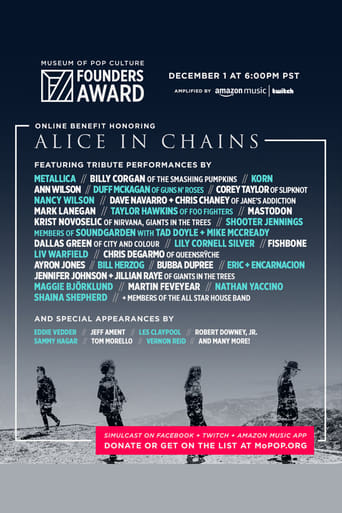

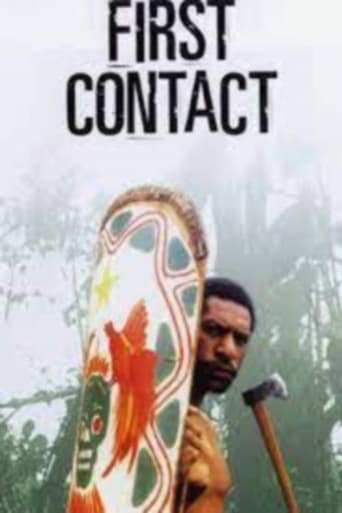
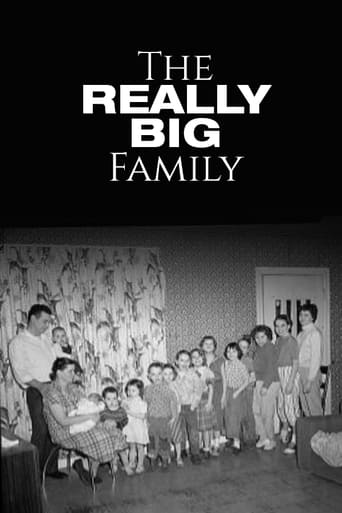
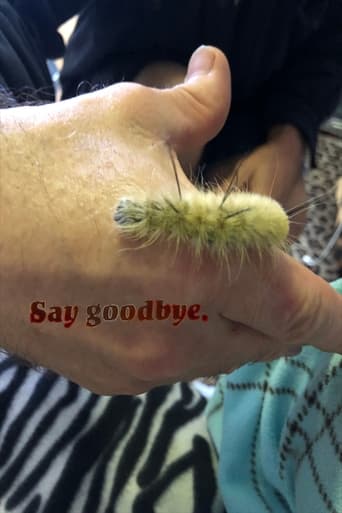






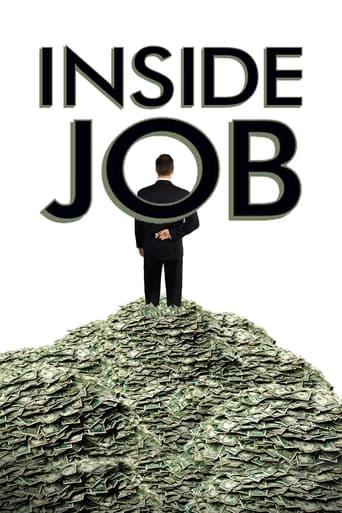
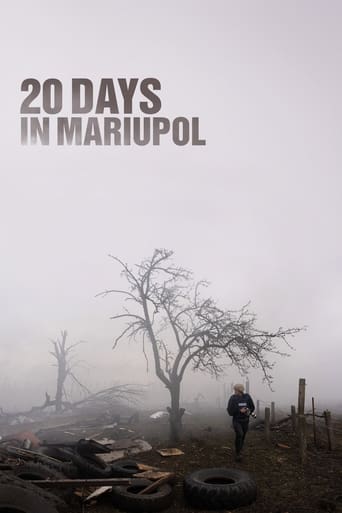
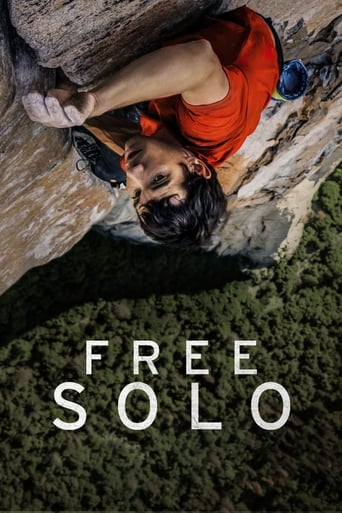

Urge to Build
Urge to Build is a 1981 American short documentary film directed by Roland Hallé about individuals building their own homes. They share the experience and the different phases of construction, providing a background for more human issues: stress, confidence, and control of one's own life. It was nominated for an Academy Award for Best Documentary Short.